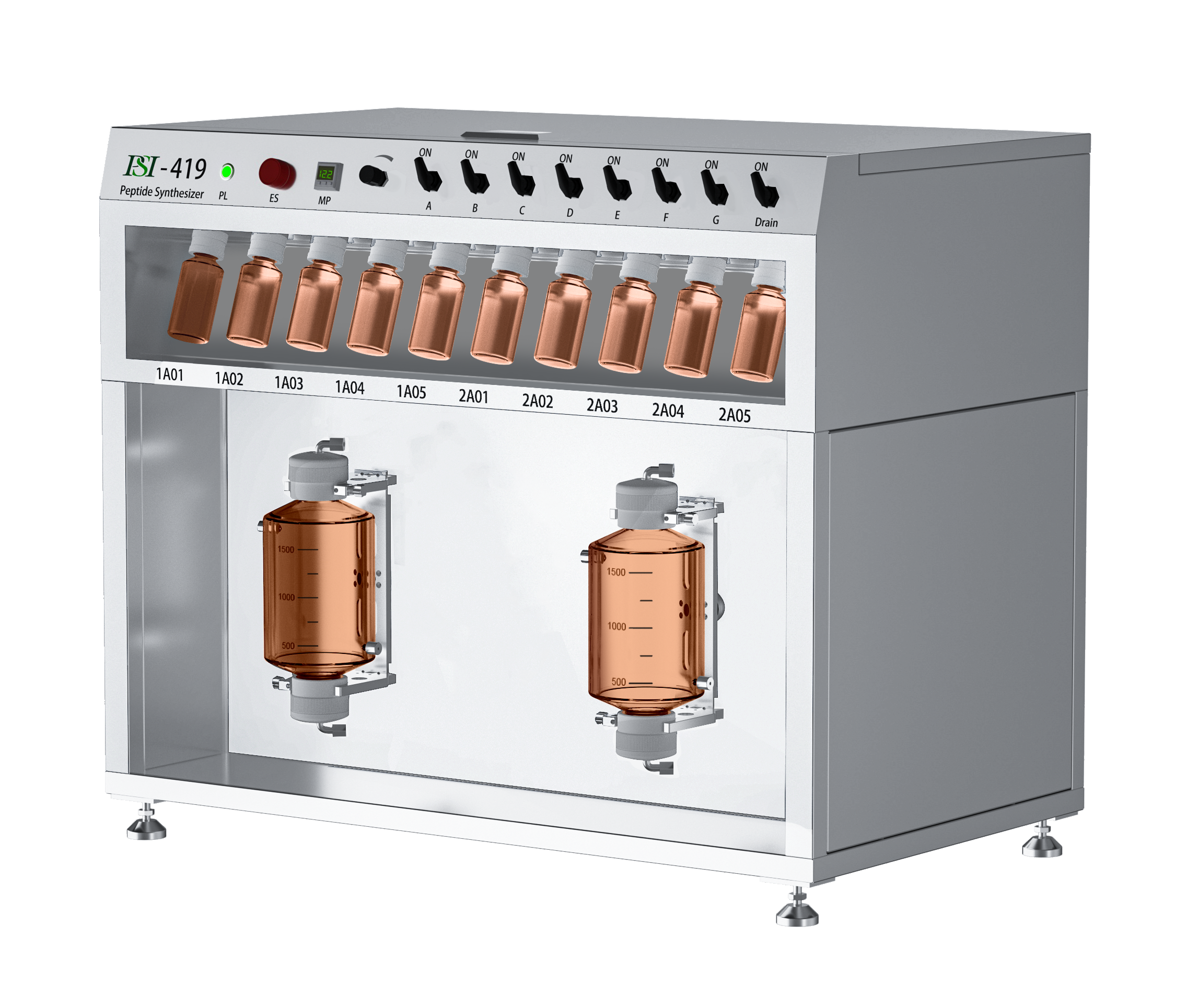Discussion on the operation process and automation degree of Two-channel Peptide Synthesizer
Release Time:2024-05-14
Number of views:1918
Peptide synthesis is a key step in biochemistry and protein engineering research, and the Two-channel Peptide Synthesizer is a special equipment to realize this process.
I. The operation process of Two-channel Peptide Synthesizer generally includes the following steps:
1. Equipment preparation: ensure that all components are in normal working condition, including reaction vessels, synthesis columns, liquid chromatography system, etc..
2. Raw material preparation: design the peptide chain sequence according to the peptide to be synthesized, and prepare the corresponding amino acid raw materials as well as auxiliary reagents such as protectants and coupling agents.
3. Peptide chain synthesis: add amino acids sequentially in the synthesis column and connect them into peptide chain through coupling reaction. The dual-channel design allows two different peptides to be synthesized at the same time.
4. Product purification: After the synthesis is completed, the product is purified using a liquid chromatography system to remove unreacted raw materials and by-products.
5. Product identification: The synthesized peptides are structurally identified and purity evaluated by mass spectrometry, nuclear magnetic resonance and other means.
6. Data recording and analysis: organize and analyze the data collected during the experiment for further research and application.

II. In the above operation process, the degree of automation directly affects the efficiency of the experiment and the accuracy of the results. It usually has the following automation features:
1. Friendly user interface: through the touch screen or computer interface, users can easily set the experimental parameters, such as reaction time, temperature, pressure, etc..
2. Automatic control of reaction conditions: the instrument can accurately control the conditions in the synthesis process to ensure the homogeneity and repeatability of the reaction.
3. Automated data processing: the synthesizer is usually equipped with built-in data recording and analysis software, which can monitor the experimental process in real time and automatically generate experimental reports.
4. Intelligent synthesis strategy: some advanced synthesizers also have self-optimization function, which can adjust the synthesis strategy according to the previous experimental results to improve the yield and purity.
As an efficient peptide synthesizer, Two-channel Peptide Synthesizer plays an important role in biomedical research and drug development. Its highly automated nature not only improves experimental efficiency, but also increases the reproducibility and accuracy of results.




